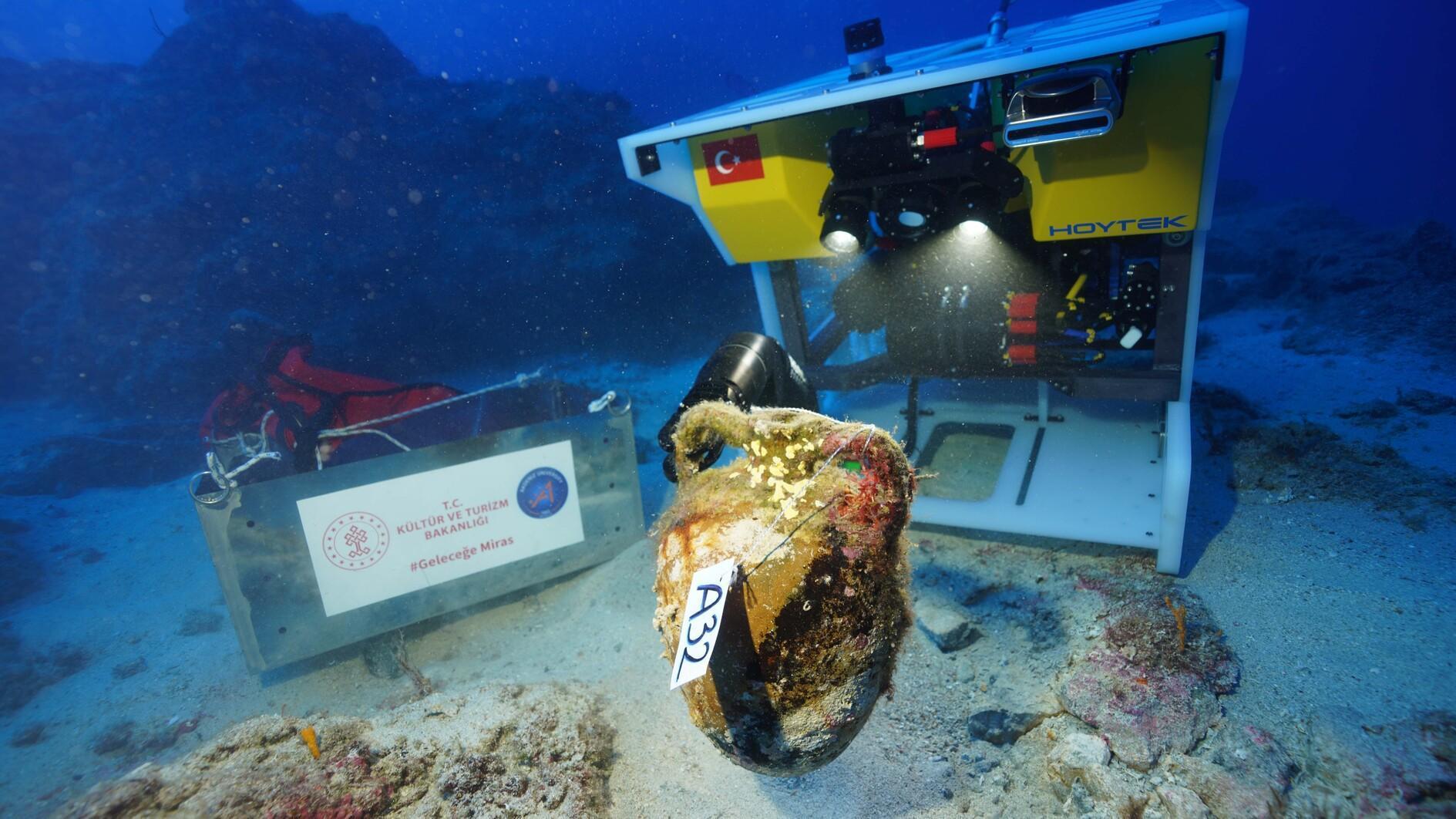
In a remarkable intersection of history and nature, scientists have discovered 1,100-year-old olive seeds from a shipwreck that departed from the Gaza coast of Palestine before it sank near Antalya.
Associate Professor Hakan Öniz and his team discovered olive seeds, previously never found in underwater excavations along Turkish coastlines. The 1,100-year-old olive seeds recovered from a single amphora will be displayed at the Mediterranean Underwater Archaeology Museum.
Öniz, head of the Department of Cultural Heritage Conservation and Restoration at Akdeniz University's Faculty of Fine Arts, stated that they began underwater excavation works in 2024 at a depth of approximately 45-50 meters off the coast of Besmi Island in Kaş, Antalya.
Explaining that they were conducting several underwater excavations within the scope of the ministry's Underwater Archaeology Museum in Kemer, Öniz noted that the goal was to both carry out scientific studies and display the artifacts unearthed in the museum. He also noted that they could conduct excavation work for 12 months, adding that they had started work on the wreck found on Besmi Island in Kaş. He mentioned that this wreck is a known and tourist-accessible wreck, although not everyone could dive into it due to its deep location.
“We focused our work on the amphorae from the 9th-10th century, 1100 years old, found in the wreck,” he said.
Öniz explained that they identified the wreck as a ship loaded with olive oil, which had sailed from Gaza’s coast and was struck by a storm while transporting the oil in amphorae to an unknown location, sinking after hitting a small rock or island off Kaş.
“The wreck was very interesting due to its depth and its cargo. Olive oil and wine were goods carried by ships in ancient times. But what came out of one amphora was particularly striking,” he said.
Emphasizing that amphorae from different regions had distinct characteristics in ancient times, Öniz noted that they recognized the wreck as originating from Palestine by studying the typology of the amphorae.
He also shared his excitement over a particular find in one of the amphorae. “While its existence was known, we had never seen these findings in amphorae until now. In fact, there are only a few examples of it globally, and this is a first in Türkiye,” he said.
The amphorae from the wreck were brought to the surface using underwater robots, and Öniz mentioned that they had begun underwater excavations with robots descending into deep waters over the past year.
"We found olives, or rather olive seeds, in one of the amphorae we retrieved with the help of robots," he added.
Öniz stated that olive oil, wine and olives were some of the most important cargo transported by ships in ancient times. “Olives have been the unchanged food of Mediterranean sailors for nearly 5,000 years, since the Bronze Age,” he said.
Explaining that sailors needed non-perishable food for long journeys, he said, “Olives placed in amphorae would become edible in seawater within a week and could last for months without spoiling. For this reason, it was an essential food.”
Additionally, he mentioned that ships also carried live animals and wheat, which were ground into flour in the ship's mills and used to make bread.
He highlighted that most of the underwater work in Türkiye is carried out by Akdeniz University. He emphasized that the olive seeds found in the wreck were the first of their kind on the country's coastlines. He also mentioned that the findings will be exhibited at the Mediterranean Underwater Archaeology Museum, which the Culture and Tourism Ministry is planning to establish in Kemer.